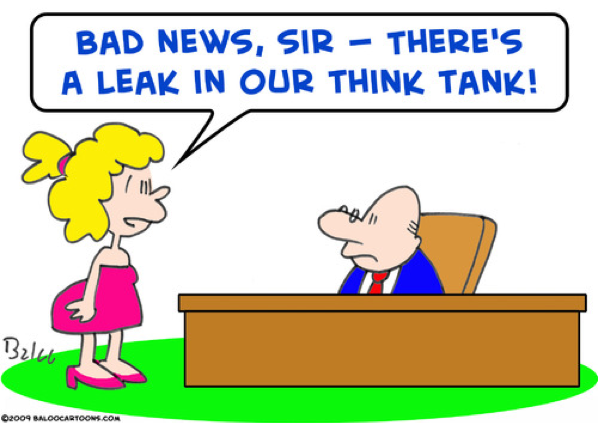Think Tank Trouble, Transition Teams, and Presidents’ Historians
Here’s What You Need to Know
Think tanks have long been considered one of the last bastions of thoughtful, intellectual analysis in the political arena. A recent investigative series by The New York Times and the New England Center for Investigative Reporting has outlined a number of instances in which they claim think tanks have offered particular corporate or political interests a way to influence policymakers with more subtlety than traditional shoe-leather lobbying. This story offers an important lesson: finding and analyzing information on organizations (including think tanks) that might support, oppose, or be persuaded to your cause is critical to achieving public affairs objectives.
Examples of the intersection between think tanks and particular interests identified by The New York Times include:
- Brookings Institution and Lennar Corporation: One of the primary examples of corporate influence of a think tank has been home building giant Lennar Corporation’s relationship with the Brookings Institute. After contributing $400,000 to the think tank, Brookings began aggressively touting the company’s $8 billion San Francisco development plan and even appointed Lennar executive Kofi Bonner as a senior fellow. The Brookings seal of approval no doubt carried some weight with city officials when Lennar sought approval for various elements of the project.
- The Atlantic Council and FedEx: The Atlantic Council, a foreign policy-focused think tank, went so far as to publicly team up with FedEx to push for free-trade policies, essentially intertwining the think tank’s advocacy and a corporation’s government affairs operation. One of the internal memos circulated before a report on the TTIP trade deal was even released actually went so far as to list lobbying efforts as one of the purposes of the report. The Atlantic Council argued that FedEx had only donated $20,000 to the effort.
- Scholars or Lobbyists? The report also found that 75 different think tanks had scholars who also worked as lobbyists, paid consultants, or corporate board members. For example, a Brookings senior fellow for health care policy was advocating for a particular Hepatitis-C treatment while earning a six-figure salary on the board of the pharmaceutical company producing the treatment. A former Senator serving as a visiting fellow on energy issues for centrist think tank Third Way also worked as a registered lobbyist for a waste-to-energy facilities company. These are all relationships that opponents of these lobbying efforts need to know in order to gain an information advantage for their own counter-advocacy efforts.
- Ballooning Budgets: The Brookings Institutions’ budget has grown to nearly $100 million over the past decade, but other major think tanks have also gone on spending sprees. CSIS – whose donors include energy, financial, and defense companies – recently built a new $100 million office tower. The American Enterprise Institute has also announced a new $80 million headquarters.
Many in the think tank community argue there are systems in place to ensure that donors are not able to impede on the independence of the research and reports. Regardless, it is clear think tanks can and are being used as new tools to influence policymakers. Those seeking to influence policymakers must understand how different individuals and organizations can be leveraged to stymie or achieve their public affairs goals.
Subscribe to Receive Insights
"*" indicates required fields
News You Can Use
TRANSITION TEAMS, ASSEMBLE!
While nearly all the focus over the next few months will remain on the campaigns, there’s been very little attention given to the members and actions of presidential transition teams. This month, the federal government officially began offering the Clinton and Trump campaigns assistance as they each prepare to staff their potential administrations. As the Partnership for Public Service’s David Eagles explains, transition teams are tasked with the often overlooked task of turning rhetorical campaign promises into agenda implementation plans. While the Clinton transition team appears to be a blast from the past with a cadre of long-time advisers, the Trump campaign has chosen a different path with individuals like New Jersey Governor Chris Christie and former House Intelligence Committee Chairman Mike Rogers that have governing, but not White House experience. Their actions over the next three months will give clues as to how they will build, launch, and operate their administrations.
EU AGENCIES EU EMPLOYEES HAVE NEVER HEARD OF
Politico recently featured a list of ten agencies within the European Union that are so obscure that even most EU employees have no idea they exist. The agencies range from the European Centre for the Development of Vocational Training (CEDEFOP), which claims to exist “at the crossroads between education systems and the world of work,” to the European Fisheries Control Agency (EFCA), which seeks to help member states comply with common fisheries policy. The list provides a peek into the almost comically complex world of the European Union and might give an idea of why leaving the cumbersome regulatory behemoth appealed to a majority of UK voters.
THE MELTDOWN’S LEGACY
Eight years since the 2008 financial crisis, reverberations can still be felt from the global financial institutions to local real estate markets. As Politico notes, that year’s legacy of “too big to fail” still haunts European and American regulators as they seek the so-called “Holy Grail”: allowing a big bank to fail without wrecking economic growth or squeezing taxpayers to rescue it. Meanwhile, The New York Times reports many in the hard-hit Las Vegas real estate market remain underwater on their mortgages. As many as one in four Las Vegas area homeowners owes more to the bank than his or her home is worth. Whether the focus is on global regulators or individual homeowners, it is clear a true economic recovery has not yet arrived and uncertainty is as high as ever for the U.S. and global economies.
ELECTION LAW GROUND WARS
The results of this election will not only be decided by voters casting ballots; they may also be affected by rulings from state and federal courts. As Roll Call notes, “Legal challenges to state election laws are still working through federal courts … The outcome of those cases on issues such as photo identification, polling locations and registration could affect voter turnout in about a dozen swing states.” For instance, Ohio Democrats have challenged a Republican plan to remove voters from the rolls after a number of years of electoral inactivity and failure to respond to state warnings, and North Carolina’s voter ID law was recently halted by a 4th Circuit Court of Appeals ruling declaring the law to have “discriminatory intent.” These changes matter not only for this election, but could also determine how campaigns approach voter turnout for elections to come.
HISTORY 101 FOR POTUS?
Graham Allison of the Harvard Kennedy School and Niall Ferguson of the Hoover Institution recently penned an argument in favor of a “White House Council of Historical Advisers.” The body would mirror the Council of Economic Advisers and offer Presidents analysis of current events through the lens of historical analogues. While some presidents have had informal relationships with historians, and historians proposed similar ideas during the Carter and Reagan administrations, no White House has ever elevated “applied history” to this level of advice and counsel. But given the gravity of issues facing the next President, creating an executive council specifically to provide historical context is an interesting idea.
BRAZILIAN CDOs
Brazilian budget and finance ministers announced their government plans to securitize a portfolio of outstanding tax debt that may reach 60 billion reals ($18 billion). The plan is aimed at easing the nation’s budget gap and settling the distressed Brazilian financial system. Investors seem interested in the concept, but are waiting to see how transparent the government makes the process. This could end up saving the Brazilian economy or making it dependent on terms favorable to foreign investors rather than Brazilian taxpayers.
FIGHT FOR YOUR RIGHT TO TWEET
Last month, the Olympic Committee announced that non-sponsors of the games were banned from tweeting about them using hashtags like #Rio2016 and #TeamUSA. A small Minnesota carpet cleaning business has taken umbrage with this demand and filed a lawsuit in U.S. District Court claiming the ban violated their First Amendment rights. Aside from the general idea that any person or business should be allowed to root for their home team, the lawsuit could actually present an important case of “trademark bullying” before the Courts.
Mark Your Calendars
Monday, September 26: First Presidential Debate, Hofstra University, Hempstead, NY



